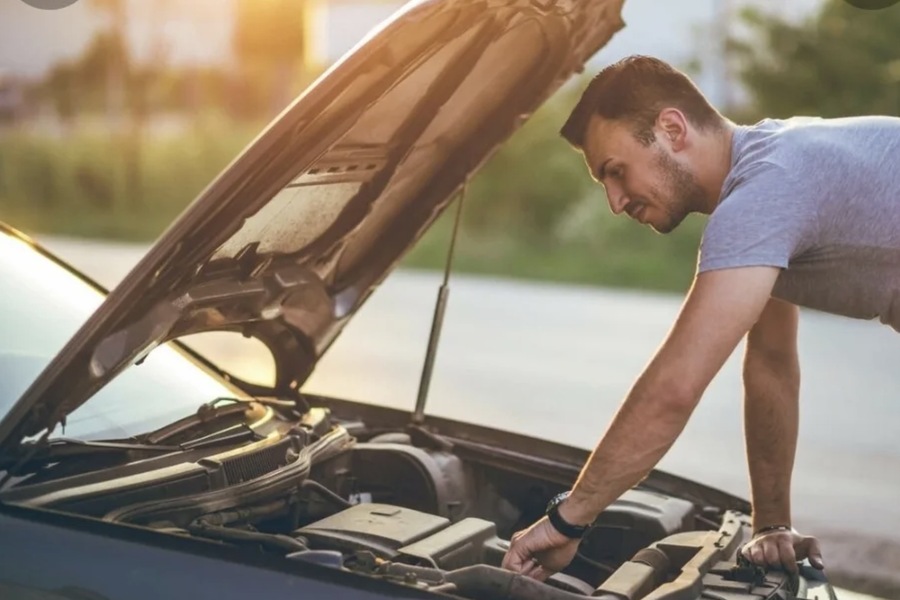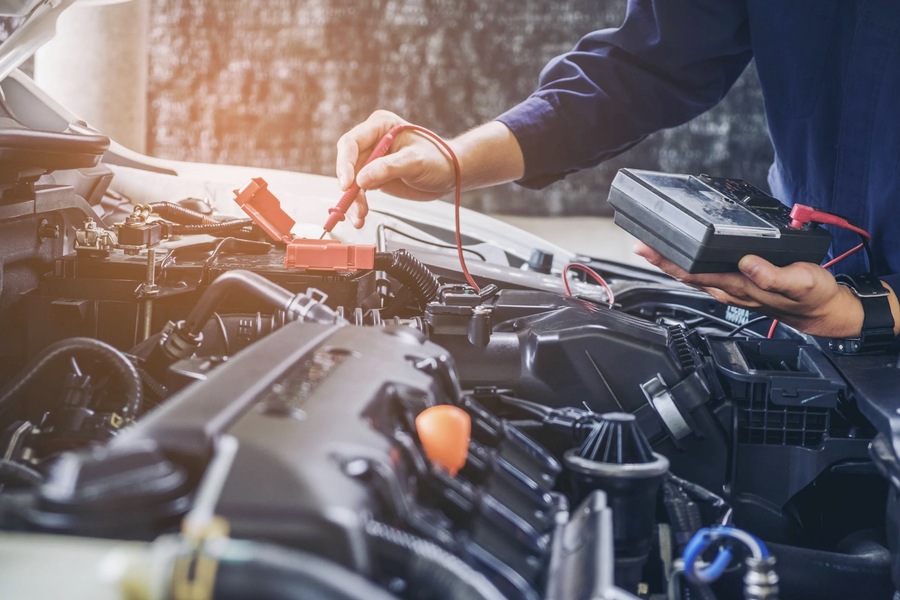Car maintenance is a crucial aspect of vehicle ownership, encompassing a range of diagnostic procedures, adjustments, and the replacement of consumables. This regular upkeep ensures that your car continues to run efficiently, safely, and reliably. By following the manufacturer’s service schedule, car owners, particularly those using a trusted Mazda service center Dubai, can prevent unexpected breakdowns and costly repairs while extending the lifespan of their vehicle. This detailed guide will explore the types of services included in car maintenance, the importance of regular upkeep, and the impact of new automotive technologies on maintenance procedures.
What is Car Maintenance?
Car maintenance refers to the systematic inspection and care of a vehicle’s various systems and components to ensure they function optimally. Typically performed at specific intervals, these services include both preventive measures and necessary repairs. Maintenance aims to prevent wear and tear from escalating into more significant, costly issues. By diagnosing potential problems early, technicians can correct them before they cause severe damage to the car’s engine, electrical systems, or safety mechanisms.
Maintenance should always be carried out at certified service centers, especially during the warranty period, to ensure that all tasks meet the manufacturer’s standards. These centers have access to the latest diagnostic equipment and qualified technicians trained to handle specific makes and models of vehicles.

Key Components of Routine Car Maintenance
Car maintenance is not just about keeping the engine running smoothly—it involves a comprehensive approach to inspecting and maintaining all vital components. Here are the essential tasks typically included in a regular maintenance schedule:
1. Adjustment: Fine-Tuning Systems and Components
Adjustment involves the calibration of the car’s mechanical and electronic systems to ensure they perform at optimal levels. Technicians adjust elements such as the wheel alignment, engine timing, throttle response, and suspension settings. Improper alignment, for instance, can lead to uneven tire wear and reduced fuel efficiency. Fine-tuning these systems ensures smoother driving and prevents premature wear of critical components.
– Wheel Alignment
Ensures that all four tires make even contact with the road, promoting even tire wear and improving vehicle stability.
– Engine Tuning
Involves adjusting the engine’s parameters for optimal fuel combustion, boosting both performance and fuel efficiency.
– Suspension Adjustment
Keeps the car stable and comfortable to drive, absorbing bumps and maintaining tire traction on uneven surfaces.
2. Lubrication: Oil and Filter Changes
Oil and filter changes are fundamental to maintaining the longevity and performance of the engine. Engine oil acts as a lubricant for moving parts, reducing friction and preventing overheating. Over time, the oil becomes contaminated with debris and loses its effectiveness, which is why regular oil changes are necessary.
– Engine Oil
As engine oil ages, it loses its lubricating properties, leading to increased friction and wear on engine components. Regular oil changes ensure that the engine operates efficiently and avoids overheating.
– Oil Filter
The oil filter captures dirt and particles from the oil. If clogged, it can no longer clean the oil effectively, which can lead to engine damage. Replacing the oil filter with each oil change is crucial.
3. Electrical System Maintenance
Modern cars rely heavily on electrical systems for both essential functions, like ignition and lighting, and advanced features, like infotainment and navigation. Diagnosing and maintaining the electrical system during routine maintenance helps prevent issues that could cause the vehicle to malfunction.
– Battery Check
The battery provides the power needed to start the car. Its performance deteriorates over time, so checking the charge and condition is critical. Dead batteries are one of the most common causes of roadside breakdowns.
– Alternator and Charging System
The alternator recharges the battery while the car is running. If it fails, the battery will not receive enough power, causing electrical systems to shut down. Regular diagnostics ensure the alternator and charging system are functioning correctly.
– Lighting and Sensors
Regular checks of headlights, brake lights, and indicators ensure that they operate correctly, enhancing road safety.
4. Fastener Checks: Ensuring Structural Integrity
The various components of a car are held together by fasteners such as bolts, nuts, and screws. Over time, vibrations, wear, and environmental conditions can cause these fasteners to loosen. Checking and tightening fasteners is a key part of vehicle maintenance, ensuring that all parts remain securely in place.
– Suspension Bolts
Loose suspension bolts can affect vehicle handling, leading to poor road performance and increased tire wear.
– Engine Mounts
Loose engine mounts can result in excessive engine movement, causing damage to other components.
– Exhaust System
Loose fasteners in the exhaust system can lead to increased noise and the potential for exhaust leaks, which are hazardous to both the driver and the environment.
5. Filter Replacements: Air, Fuel, and Cabin Filters
Filters play a crucial role in ensuring that the vehicle operates efficiently and that both the engine and occupants remain protected from harmful contaminants.
– Air Filter
The air filter prevents dirt and debris from entering the engine’s combustion chambers. A clogged air filter reduces engine performance and fuel efficiency, which is why replacing it is essential.
– Fuel Filter
The fuel filter removes impurities from the fuel before it reaches the engine. Regular replacement ensures that the engine receives clean fuel, improving performance and preventing damage to fuel injectors.
– Cabin Filter
The cabin air filter ensures that the air inside the vehicle remains clean, filtering out dust, pollen, and other particles. A dirty cabin filter reduces airflow to the HVAC system, affecting both heating and cooling efficiency.
6. Control and Diagnostics: Comprehensive System Inspection
Comprehensive diagnostics are performed to inspect critical systems, ensuring that there are no leaks, loose connections, or worn-out components.
– Fluid Levels
Regularly checking and topping off fluids such as coolant, brake fluid, transmission fluid, and power steering fluid is essential for the smooth operation of the car.
– Brake System
Brake pads, rotors, and calipers are inspected for wear, and brake fluid levels are checked. Worn brake components can severely impact stopping power and safety.
– Tires
Technicians check for tire wear, inflation levels, and balance. Properly inflated and balanced tires enhance fuel efficiency, handling, and safety.
Why Regular Car Maintenance is Critical
1. Cost-Effectiveness
Regular maintenance prevents small issues from becoming costly repairs. For example, a worn timing belt, if not replaced on schedule, could break and cause extensive engine damage. Similarly, replacing brake pads before they wear down completely prevents the more expensive repair of the entire brake system.
2. Road Safety
During regular maintenance, mechanics inspect critical safety systems such as the brakes, tires, and lights. Ensuring these components are in good working condition helps to prevent accidents caused by mechanical failure, providing peace of mind for the driver and passengers.
3. Adaptation to Climatic Conditions
In extreme climates, regular maintenance becomes even more essential. For instance, in cold climates, technicians may check the car’s antifreeze and battery, while in hot climates, they will focus on cooling system efficiency. Routine checks ensure the car is prepared to handle harsh conditions without malfunctioning.
4. Insurance Benefits
Many insurance companies offer lower premiums to car owners who can provide documentation of regular maintenance. Additionally, keeping detailed service records ensures that insurance claims for mechanical breakdowns are easier to process.
5. Resale Value
A well-maintained car with a documented service history will fetch a higher resale value compared to a similar car with no maintenance records. Buyers prefer vehicles that have been regularly serviced as they are less likely to experience hidden issues.
6. Extending Vehicle Lifespan
Regular maintenance helps to extend the lifespan of critical components, such as the engine, transmission, and braking system. For example, changing the timing belt before it fails can prevent significant engine damage, while regular oil changes keep the engine in optimal condition.
7. Enhanced Performance
A well-maintained car will always perform better. Oil changes reduce friction in the engine, while new filters improve airflow and fuel quality. Adjustments to the suspension and brakes ensure smooth handling and responsive braking, providing an overall better driving experience.
8. Fuel Economy
Maintenance directly impacts fuel efficiency. For example, clean air and fuel filters ensure efficient combustion, while properly inflated tires reduce rolling resistance. Together, these factors contribute to better fuel economy, saving you money over time.
9. Warranty Compliance
For cars under warranty, regular maintenance is often a requirement to maintain warranty coverage. Skipping scheduled services could void the warranty, leaving you responsible for costly repairs that would otherwise be covered.

The Impact of Modern Technologies on Car Maintenance
Today’s cars are equipped with advanced technologies that require specialized diagnostic equipment and expertise for proper maintenance. From complex electronic control units (ECUs) to sensor-based systems like tire pressure monitoring, modern vehicles rely on an array of digital components. Regular maintenance ensures these systems function properly, preventing errors that could affect performance, fuel efficiency, or safety.
Safety and Car Maintenance: A Direct Connection
Safety is at the core of car maintenance. Regular inspections of essential components like brakes, tires, lights, and suspension systems ensure that your vehicle is prepared to respond effectively in critical situations. Keeping these systems in top condition minimizes the risk of accidents due to mechanical failure, ultimately enhancing your safety and the safety of others on the road.
Conclusion
Car maintenance is not merely an option—it is a responsibility. Regular maintenance keeps your car in optimal condition, preventing expensive repairs, improving safety, and maintaining its resale value. Whether it’s a simple oil change, a thorough diagnostic of electrical systems, or an adjustment of critical components, each task plays a vital role in keeping your vehicle running smoothly. With the integration of new technologies in modern vehicles, routine diagnostics and maintenance are even more essential, ensuring that both mechanical and electronic systems function correctly. In short, regular car maintenance is a small investment that yields long-term benefits in terms of safety, performance, and cost savings.




